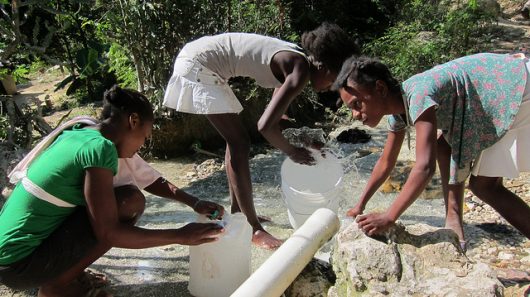10 Eye-Opening Facts about Human Rights in Haiti

Located on the island of Hispaniola, Haiti is home to a population of around 11 million people and has been victim to environmental disasters and political corruption. These issues are still prevalent today and continue to affect Haitians around the country; here are 10 facts about humans rights in Haiti that everyone should know.
10 Facts About Human Rights in Haiti
- Throughout history, Haiti has suffered many natural disasters that have ruined entire regions and left families homeless and in dire need of government support. The last category-5 hurricane – Hurricane Matthew – killed around 336 people, and displaced more than 60,000 others. The Haitian government worked with UNICEF and other humanitarian programs since to assist families and children and provide clean drinking water.
- The prison system is one of the greatest human rights issues in Haiti. Haitian prisons have the highest overcrowding rate in the entire world, and around 80 percent of the inmates are still awaiting trial and have never been convicted of a crime.
- Haiti’s illiteracy rate is the highest in the western hemisphere. Despite efforts to reform the education system, the country still faces shortages in school supplies and qualified teachers. Enrollment rates, however, have been steadily increasing, allowing Haitian children the fundamental right to receive an education.
- The displacement of Haitian children after the 2010 Hurricane led to a striking increase in human trafficking. Today, around 30,000 children live in orphanages. Many of these so-called “orphanages” are actually trafficking businesses exploiting children and forcing them to work in dirty, inhumane environments. J.K. Rowling, the writer of the best-selling Harry Potter novels, has created a non-profit organization called Lumos that strives to end corrupt human traffickers from preying on vulnerable children.
- In 2015, allegations were made about fraudulent behavior related to the presidential election in the nation. After the allegations were confirmed in 2016, another election was held and declared Jovenel Moise as the new Haitian president in 2017. Recently, Moise has been in political turmoil over the new fuel price hike and Haitians are violently demanding that he step down from office.
- The LGBTQ community continues to suffer substantial discrimination from the Haitian government. In 2017, the Haitian Senate introduced a bill that grouped homosexuality as a reason to deny a citizen a certificate, and included child pornography and incest; the Senate has since approved the bill.
- The Haiti labor code does not set a minimum age for work in domestic services. Restaveks, also known as child domestic workers, are often impoverished girls sent to work for wealthy families in hopes of a better lifestyle. These children end up receiving no schooling, work long hours and are often victims of sexual abuse.
- Haiti has the highest rate of infant, toddler and maternal mortality in the western hemisphere. Haitians are deprived of basic human rights such as healthcare — 60 percent lack healthcare access.
- Refugee rights are the same thing as human rights. Haitians were given a temporary status (TPS) given to eligible nationals of certain countries who reside in the United States. The U.S. Department of Homeland Security announced a decision to terminate protection for around 60,000 people, making Haitians at risk of deportation in the U.S.A.
- Food insecurity has also been exacerbated by natural disasters. Thirty-eight percent of Haitians are food insecure and do not have basic access to food. Subsequently, food prices are on the rise and destruction of agricultural fields have only worsened the food deficit within the country.
Proactive and Concentrated Efforts
These 10 facts about human rights in Haiti raise many concerns. Nevertheless, nationwide and international programs are dedicated to finding solutions to provide a better lifestyle for people in Haiti.
– Lilly Hershey-Webb
Photo: Flickr
